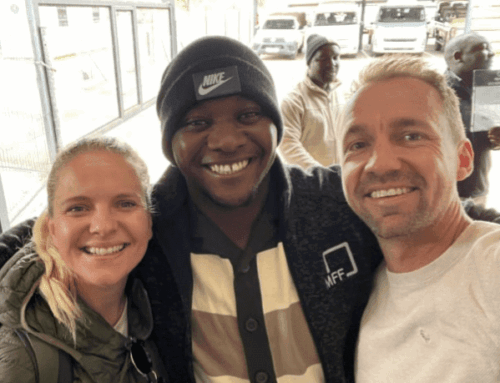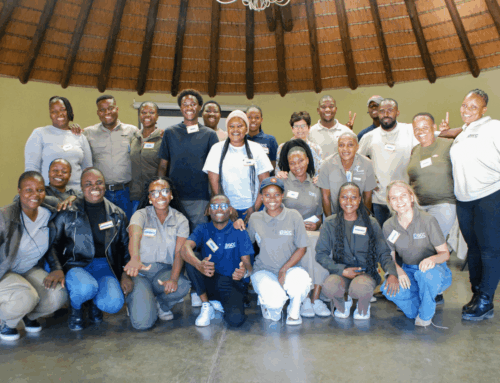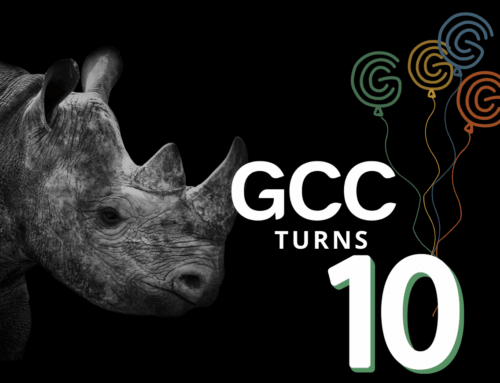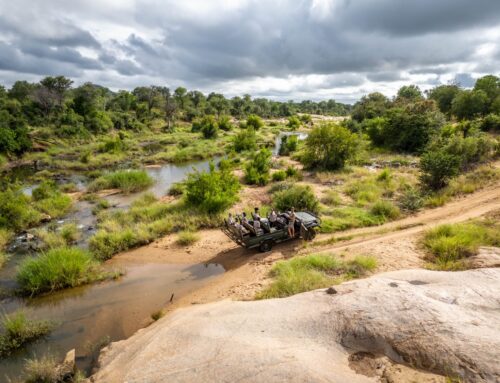From the world of luxury watches to wildlife conservation, Michele Sofisti is using his extensive business knowledge in the fight for biodiversity protection and climate change. He has had an illustrious career in the private sector, holding CEO positions for luxury brands such as Girard-Perregaux, Gucci Group Watches & Jewelry, Omega and more. Now working as a strategic business advisor, he is turning his talents to a new cause.
How did you get involved with GCC?
In 2017 I went down to South Africa with my family and we did a few game drives to see the animals. In one of the lodges where we were staying there was some information about GCC. When I returned home, I went online and checked it out and wrote an email to Matt Lindenberg, Executive Director of the organization. He replied a few days later and we started talking. In September, we met in New York and shared our respective experiences. He is a conservationist and I am from management and the business world. I told him that if there was anything I could do to support the organization; I would be more than happy to help.
How did you change from the luxury business world to conservation?
I actually started my career with nature as I am a geologist by training. The love for geology has always remained with me. I am always reading about it and visiting places of geological interest such as the Himalayas, The Galapagos Islands, Tibet, Patagonia. So even when I was selling luxury watches, this passion stayed with me. One advantage of my professional life is that I have met some incredible people and companies from all over the world and there is nothing I enjoy more than connecting people. Right now, my mission is to connect people to concentrate on the two most important environmental issues: Biodiversity protection and climate change. Our planet is in a very bad situation and I am doing my best to focus on finding solutions. In addition to GCC, I am also starting to work with Resolve.org, an organization in Washington that uses technology to support conservation.

You have had an illustrious career in business, how is your particular expertise helping GCC?
The NGO sector and the business world generally don’t talk to each other. And I don’t mean to be critical, it is just an observation, but even the most professional NGOs live in a bubble. They don’t like to work with business people. And on the other side, the business world isn’t interested in NGOs, and this is totally wrong. NGOs need the business expertise and businesses need to put some of their money towards good causes. The private sector can also help the communication effort to teach people about these important causes. World leaders aren’t doing it. So, for me, I am trying to bring my business expertise to GCC so that it can be more efficient and pragmatic.
NGOs tend to spend most of their energy on their good work and neglect communication. In your mind, how important is the communication effort?
I am always hammering on about communication because this is the key to change. There are three different areas of communication. The first, which is very important, is that when private sector partners start talking about GCC, for example, it multiplies our communication by reaching new audiences. We have already partnered with Garmont, Tissot, and Swiza. For Garmont alone, we have done over 20 different events and communicated to diverse audiences from journalists to the general public, conservation specialists, etc. It is extremely effective.
The second area where we can improve is more strategic and it is ongoing. In my opinion, NGOs shouldn’t solely rely on donations; they should generate their own money so we are looking into having an e-commerce platform where we can sell different items to raise funds.
And most importantly, the third area is marketing and communication to the general public. World leaders have the power to make a difference, and yet they have made it very clear that they have no interest in conservation. So the only way to make them sit up and take note is to reach the voters and their choice of who to vote for. Communication is key here and we have a big job ahead to share our work with the general public.
Since you have started working with GCC, what progress have you seen?
GCC is really growing in terms of the people who are now on board. The organization has been networking at the highest level. We have seen interest from the global press, the general public, the private sector and inquiries have been coming in from all over the globe. Matt Lindenberg, Founder and President, and his Program Director Kate Vannelli are working hard on the Future Rangers program and we are working with four schools and reaching 2,000 students. We are in the process of rolling out a high-school program in 4 more schools and we have connected to the Southern African Wildlife College for post-graduation opportunities which means we can now follow elementary students all the way up to the university level. This is huge progress and I have been very impressed by the speed of this progression. We are seeing great momentum.
How would you like to see things evolve in the future?
There are a lot of people and organizations working in conservation. There are big meetings going on all over the world, such as the IUCN Congress with some heads of state, which invites 15,000 participants, and there is another conference planned on biodiversity in China. But it seems there is more talking than action. I don’t want to point the finger, but while everyone is discussing the issues, Indonesia is still burning, the Amazon is still losing trees at a frightening rate. The issues are so important but who can change things? I really feel that the private sector needs to step up. I have worked in this world and I know the size of some marketing budgets. It wouldn’t cost much to support a great cause, and as many brands are looking to attract younger consumers to their products, why not reach them through an amazing cause that they can identify with. It is a win-win situation.




